How closely related are dementia and incontinence? Are people with dementia at a higher risk of experiencing toilet problems?
You will learn it all through this extensive article that covers causes, treatment and provides tips.
Contents
What is Dementia? A Quick Overview
Dementia is a common affliction characterized by a group of conditions related to brain impairment.
A person experiencing dementia experiences a host of conditions that coincide directly to the loss of memory and cognitive judgment.
A statistic from the CDC indicates the condition of dementia affects as much as 5.8 million Americans.
Dementia is caused by the degeneration of the cerebral cortex region of the brain. This occurs by head injury, stroke, brain tumors, and other factors not yet fully understood.
Of note: Alzheimer’s Disease is noted to be responsible for 60-70% of dementia in adults.
Common traits and symptoms for adults diagnosed with dementia include:
- Forgetfulness
- Limited desire or ability to socialize with others
- Trouble speaking
- Difficulty performing daily tasks and responsibilities
- Compromised muscular function
- Depression
- Mood Swings and/or Anger
- Disorientation or Confusion
Is it Common for Patients to Experience Incontinence?

Yes. Patients with dementia will typically have more issues with incontinence compared with someone of the same age.
The main reason is that they tend to have trouble connecting with the impulses to go to the bathroom.
There are many unknowns about the exact scientific relationship between dementia and incontinence.
Is There a Cure for Dementia?
Researchers are searching for answers for cures, new treatment options, and more advanced knowledge of these conditions and more.
To date, there are many clinical trials underway and progress is being made. We have seen many advancements in the way of diagnostic and imaging technology in addition to identifying important biomarkers.
Select Incontinence Products
| Product | Features |  |
|
|---|---|---|---|
 | Prevail Air plus Daily Brief | Soft & breathable Ultimate absorbency Pack of 4 (18 count) Night & day Skin smart Omni-odor guard | |
 | Wellness Superio Series BriefsBrand: Unique Wellness | Fully Absorb up to 2.6L Wide absorbent core Resealable landing zone for easy adjustment White with a nylon based crinkle-free plastic Value for money Stays dry for 8+ hours Award winner/ Featured on Discovery Channel | |
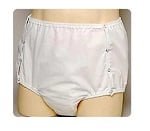 | One Piece Waterproof Snap-on Diaper Cover BriefBrand: Salk | Lightweight Softness of cloth 100% waterproof Polyester/urethane outer Brushed polyester inner Super-absorbent pad 3-ply inner layer Waterproof outer layer Washable | |
 | SOSecure Containment Swim BriefBrand: Discovery Trekking Outfitters | Discreet Swimming Undergarment Durable Polyurethane Fabric Fleece Lining Hook and Loop Closure (Easy) Elastic Waist & Legs Machine Washable Latex Free | |
 | Prevail Overnight Bladder Control PadsBrand: First Quality | For Women Dri-Fit cotton enhanced QUICK WICK Layer and cotton Odor Guard | |
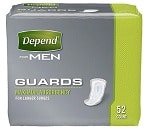 | Depend Men GuardsBrand: Kimberly Clark | Adhesive strips to hold guard in place Individually wrapped Discreet- pocket-sized pouch Easy carrying and disposal Contoured design Cup-shaped protection for men One size fits most | |
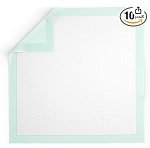 | Medline Incontinence Bed Pads | Underpads 50 count 36"X36" Heavy absorbancy Polypropylene backing (protects against leakage & resists melting) Ideal for overnight use | |
 | Inspire Washable and Reusable Incontinence Chair or Bed Pads | Washable/reusable Solves incontinence problems Safely absorbs & lock in liquids Soft & comfortable Non-irritating | |
 | Bariatric 2X-Large UnderwearBrand: Attends | Improved side panels (better comfort & fit) Acquisition layer Super absorbent polymer Tear-away sides (easy removal) Looks & feels like regular underwear Bag of 12 | |
 | Depend Mens Maximum Absorbency UnderwearBrand: Kimberly Clark | Outstanding protection Improved underwear-like fit Brief-like leg opening Heavy incontinence Soft, quiet, breathable material Conforms to the body | |
 | AIRCUTE Washable Absorbent Urine Incontinence Underwear for Women | 6 layers High waist Absorbent & leakproof Washable Breathable Comfortable | |
 | Prevail Adult WashclothBrand: First Quality | Super strong & soft fabric (12" x 8") Stay-open & easy-close lid Press 'N' Pull lid Super strong soft fabric Aloe & lanolin Lid closes tightly |
Why Are Dementia and Incontinence Related?
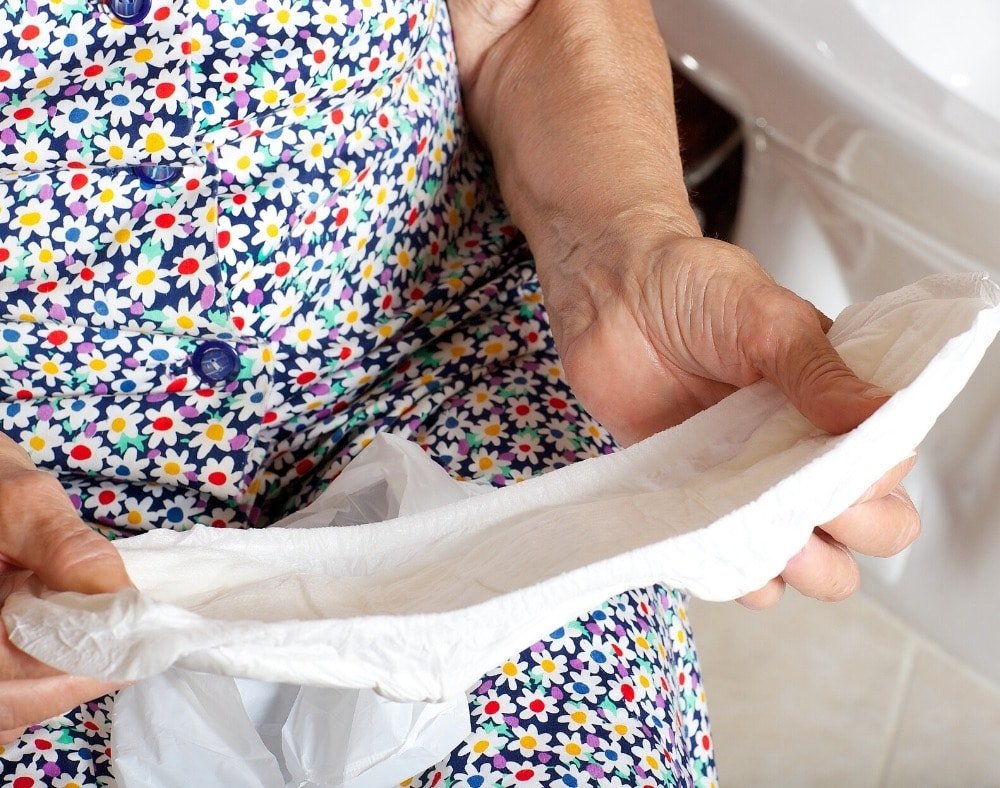
As a standalone issue, incontinence is a difficult condition. Incontinence is classically defined as the inability to control one’s urination or bowel movements.
The severity of causes of incontinence vary from person to person and there could be more than one contributing factor or causes.
Some of the more common reasons for incontinence stem directly from one or more medical conditions such as age-related stress incontinence paired with limited mobility.
Dementia tends to complicate incontinence factors in a myriad of ways:
- It becomes difficult to identify the urges to go to the bathroom.
- Sometimes there may be issues remembering the location of a bathroom.
- They may be physically unable to reach the restroom in time.
- There may be the inability to control the muscular control needed for voluntary bowel movements and urination.
Are There Any Treatment Options for Dementia Patients Suffering from Incontinence?

The first thing to do would be to determine as best you can the type of incontinence that is being experienced.
Your doctor should be able to help assist with any underlying medical issues that might be a factor.
This could translate to a change in medications or even addressing a possible urinary tract infection.
An example of possible medical interventions could be as simple as recommending pelvic floor exercises to undergo corrective surgery.
You may also find that you or your loved one qualifies for use of a medical device or procedure designed to strengthen pelvic floor muscles and to retrain the bladder.
These represent some of the more modern methods of managing bladder control. These and other treatment options are best explored with the help of your personal physician.
How Do You Manage Incontinence in Dementia Patients?
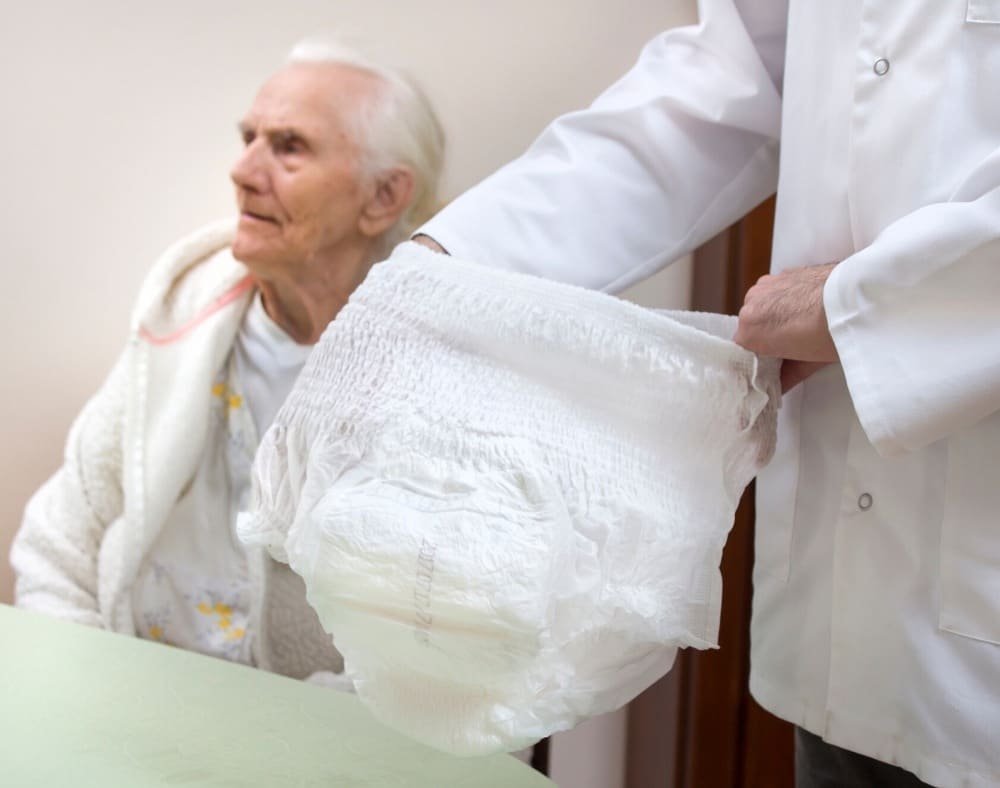
Managing incontinence is best achieved with a plan and a simple level of preparedness.
Making sure the caregiver is paired with adequate resources, preferences, and supplies can help shape the experience in a new light.
The key to effectively managing incontinence lies in maintaining one’s dignity and health intact in every possible way.
Daily Care
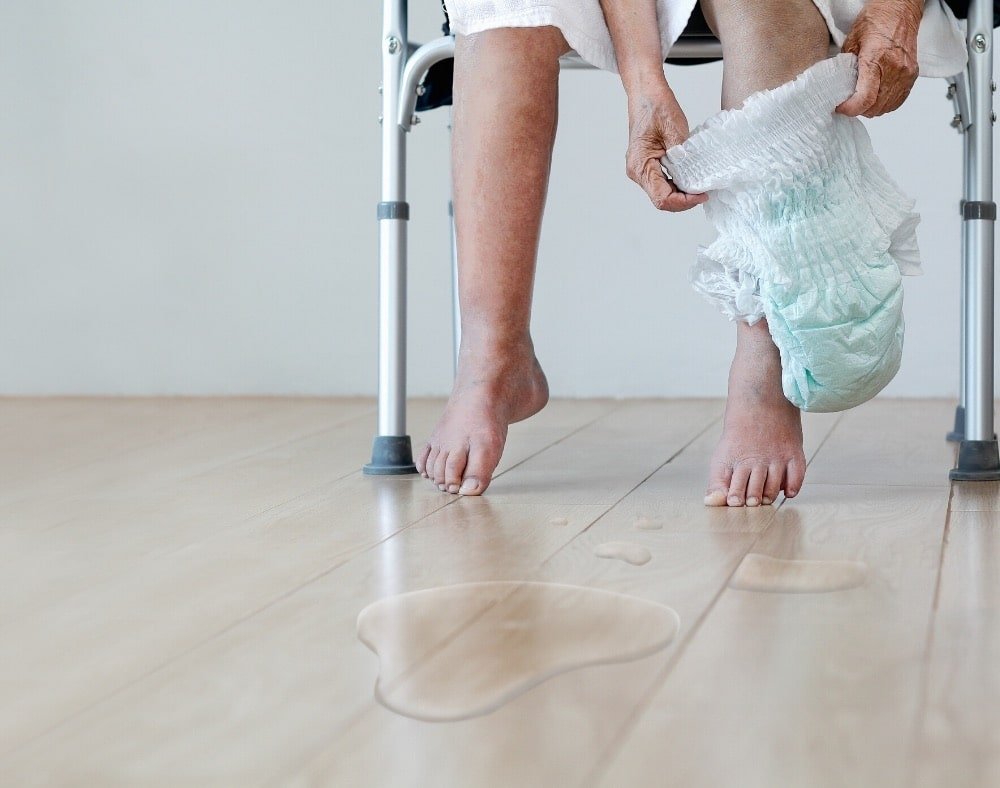
There are many things you can do to help offset the helplessness that accompanies incontinence.
- Keep a clear course or route to the bathroom. Make it as easy as possible.
- Eliminate bladder aggravating foods and drinks such as coffee, alcohol, soda, or teas.
- Choose clothing that makes getting the bathroom easier and is easily removed or changed.
- Create a routine for taking medications and eating to help facilitate predictable bowel patterns.
- Create a plan for keeping clean. Think out of the box and consider the installation of shower tools, benches, or other modifications if you are in a caregiver role.
- Get creative. An example might be to set timers to help remind patients to use the bathroom.
- Don’t’ forget about privacy – Help your loved one keep his or her dignity.
Planning for Trips

Plan accordingly for trips away from the comfort of one’s home.
Consider having a to-go bag complete and ready with a change of clothing, undergarments, and care products and keeping it in the car always.
Good practices might be assessing the need for extra stops along the way, or simply knowing the layout of a place ahead of time for an easy bathroom location.
These simple ideas may prevent an accident and help simplify visits to the doctor or even marketplaces.
Tip: Understand ahead of time what restroom facilities are available to you – especially in the cases of staying in a hotel or event location.
Don’t be afraid to call ahead and ask for any modifications that may make your stay easier.
Services and Resources
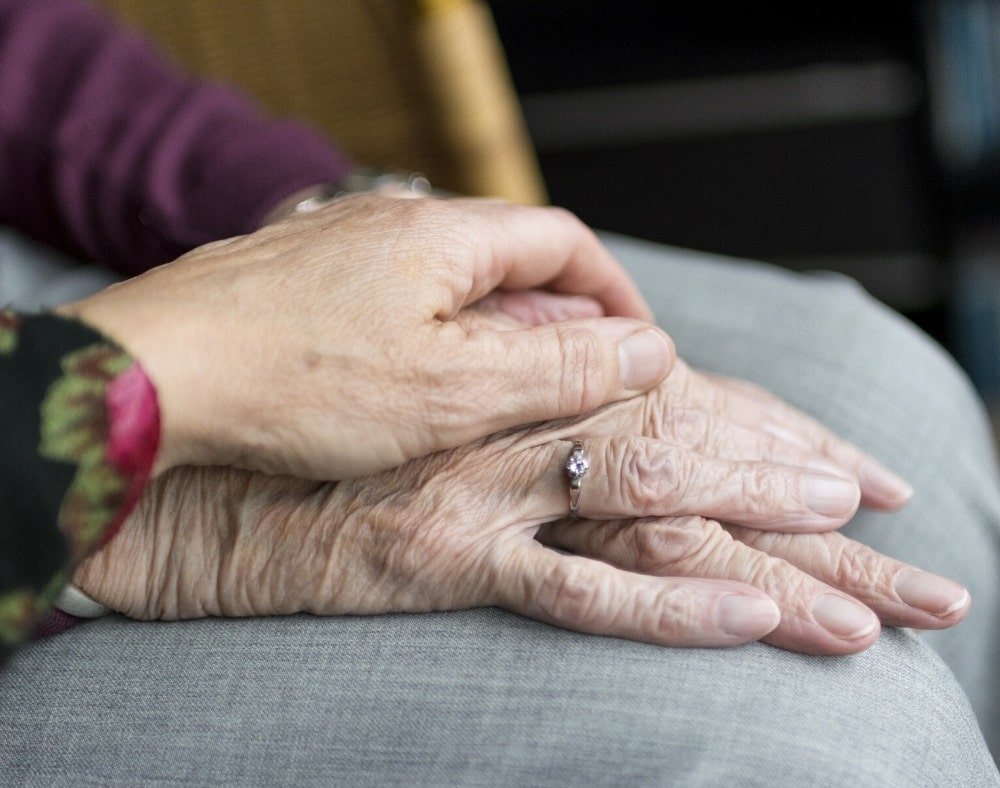
Finding support for yourself if you are a caregiver and your loved one should be a priority.
Many aren’t designed to navigate these waters alone. The CDC estimates that there are 25% of adults in the U.S. that are providing care to a loved one.
There are specialty organizations and hospital affiliates designed to assist with affordable incontinence supplies, counseling, and in some cases in-home care visits.
To learn more about the resources available to you, contact your care provider or visit informative websites like this one.
How Do You Overcome the Emotional Obstacles Associated with Incontinence and Dementia?

It goes without saying, the level of embarrassment felt by someone with incontinence is debilitating. Left unchecked, these emotions can quickly escalate to severe depression.
Encourage dialogue and healthy emotional outlets – a little compassion can go a long way.
Consider finding avenues to maintain discreet cleaning, and personalizing care options.
Don’t be afraid to experiment with the fit of personal care products.
Do your best to honor personal preferences regarding incontinent product choices.
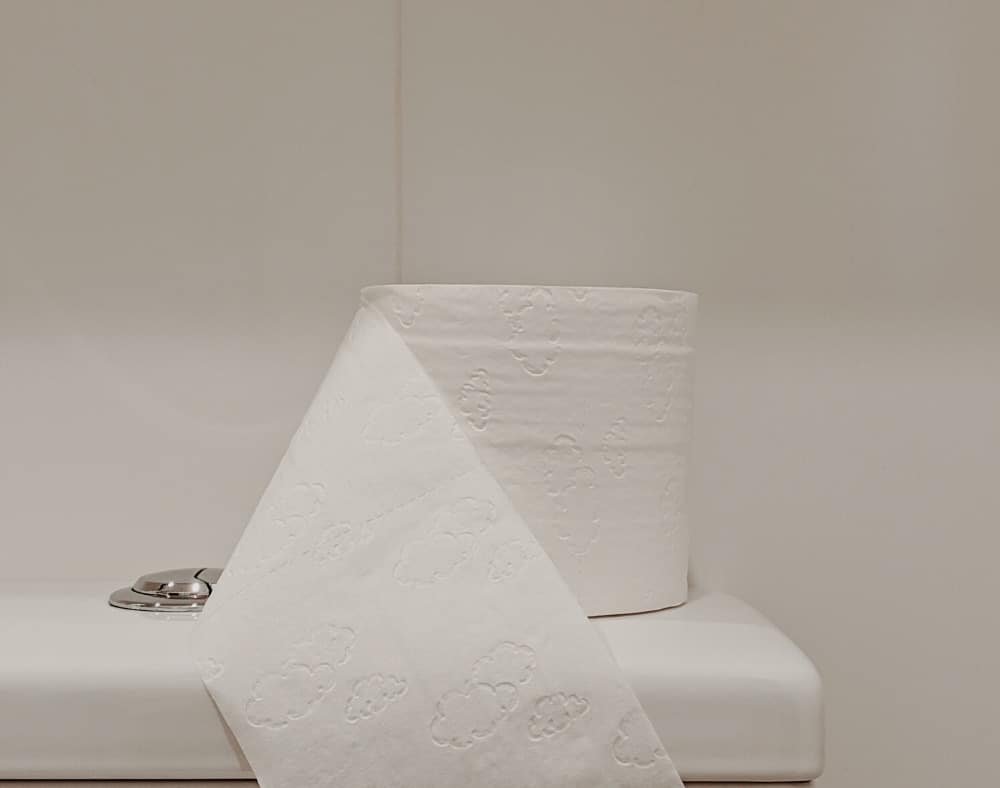
Never underestimate the humanity and value of being comfortable and feeling your best in the face of unpleasant circumstances.
It could be the one thing that makes the experience of embarrassing incontinent situations bearable.
Conclusion
Living with incontinent associated dementia isn’t easy.
However, it can be managed effectively with knowledge and a little understanding.
Make your physician your partner in creating a personalized healthcare strategy. It might be one of the best things you can do aside from staying positive.
Most importantly, stay connected with what is trending for available treatment options.
Remember communication, patience, and quality care are the hallmark vehicles to effectively managing complications of incontinence due to dementia.







